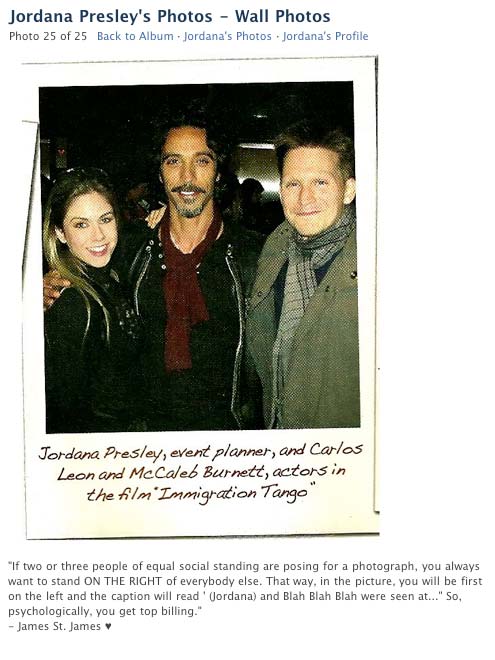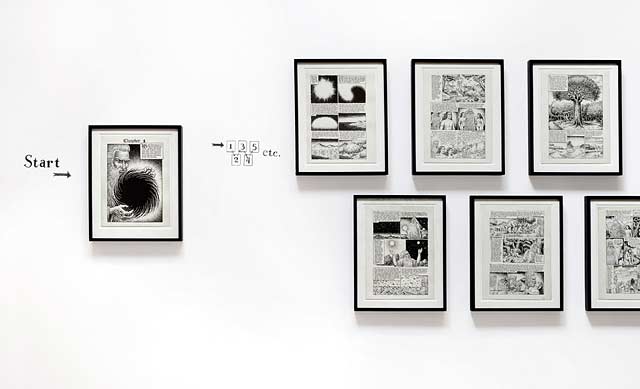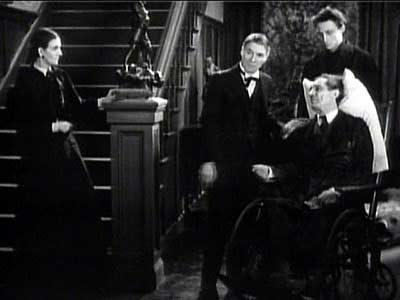guide
‘Those who restrain desire do so because theirs is weak enough to be restrained.’ –William Blake
The advice of etiquette experts on dealing with unwanted invitations, or overly demanding requests for favours, has always been the same: just say no. That may have been a useless mantra in the war on drugs, but in the war on relatives who want to stay for a fortnight, or colleagues trying to get you to do their work, the manners guru Emily Post’s formulation – “I’m afraid that won’t be possible” – remains the gold standard. (…) These are variations on a theme: the best way to say no is to say no. Then shut up. (…)
There are certainly profound issues here, of self-esteem, guilt, et cetera. But it’s also worth considering whether part of the problem doesn’t originate in a simple misunderstanding between two types of people: Askers and Guessers.
This terminology comes from a brilliant web posting by Andrea Donderi. We are raised, the theory runs, in one of two cultures.
In Ask culture, people grow up believing they can ask for anything – a favour, a pay rise– fully realising the answer may be no. In Guess culture, by contrast, you avoid “putting a request into words unless you’re pretty sure the answer will be yes… A key skill is putting out delicate feelers. If you do this with enough subtlety, you won’t have to make the request directly; you’ll get an offer. Even then, the offer may be genuine or pro forma; it takes yet more skill and delicacy to discern whether you should accept.”
Neither’s “wrong”, but when an Asker meets a Guesser, unpleasantness results. An Asker won’t think it’s rude to request two weeks in your spare room, but a Guess culture person will hear it as presumptuous and resent the agony involved in saying no. Your boss, asking for a project to be finished early, may be an overdemanding boor – or just an Asker, who’s assuming you might decline.
If you’re a Guesser, you’ll hear it as an expectation. This is a spectrum, not a dichotomy, and it explains cross-cultural awkwardnesses, too: Brits and Americans get discombobulated doing business in Japan, because it’s a Guess culture, yet experience Russians as rude, because they’re diehard Askers.
Talking of one thing or another. Lady’s hand. Which side will she get up?

SHOW by Henry Horenstein, published by Pond Press, features images of fetish, drag and neo-burlesque performers. Shot in underground clubs in Los Angeles, New York and New Orleans, these intimate and clever black and white photos capture the pasties, fishnets and lipstick kisses of the superstars of neo-burlesque, including Dita Von Teese and Murray Hill.
related { Clic will be presenting a special exhibit of Ron Galella’s most famous shots in June, to coincide with the HBO release of the documentary SMASH HIS CAMERA. }
Influence of the climate. Flowers of idleness. Azotes.

{ Robert Carlsen | Continue reading | via Nick Bilton | Read more: At 40, Earth Day Is Now Big Business | NY Times }
Cold comfort. Pious fraud but quite right: otherwise they’d have one old booser worse than another coming along, cadging for a drink. Queer the whole atmosphere of the. Quite right. Perfectly right that is.

Does red wine always go with red meat? How about white wine with fish and chicken?
Forget the rules. Francois Chartier says it’s more important to match food and wine with their molecular aromas.
In “Papilles et Molecules (Taste Buds and Molecules),” named 2010’s Best Innovative Culinary Book in the World at the Gourmand World Cookbook Awards in Paris, the Canadian master sommelier provides a detailed reference guide for doing just that. (…)
Chartier examined the aromatic molecules behind our sense of taste and matched food and wine to their corresponding molecular families. He then developed simple charts that explain how to achieve perfect culinary synergy.
re-photo { Richard Prince }
Mr. Sansweet didn’t asked to be saved. Mr. Sansweet didn’t want to be saved. And the injuries received from Mr.Incredible’s ‘actions,’ so-called, causes him daily pain.
I’m writing to you to settle a dispute between my husband and me. We have been married for six years. We’re not terribly adventurous, but we’re not totally vanilla, either. However, there is one issue that is driving me insane: My husband constantly pesters me to have anal sex. We have tried it in the past, and it is NOT my bag. I don’t enjoy it AT ALL. But my husband will not stop pestering me. He thinks if we just keep trying, eventually I’ll come around to liking it. I’m pretty GGG [good giving and game] , Dan, but this is one thing where I draw the line. He thinks I’m being unreasonable; I think he is. Do I need to give in, or does he need to get off my back? Needing Expert Advice!
In this life, it’s not what you hope for, it’s not what you deserve. It’s what you take.

In real life, nothing happens like switching on a light bulb. Those are sort of poetic notions. In the real business world and the real world, it’s a learning curve. You learn a little bit and you learn some more, learn some more, and you’ve got to keep in the race.
{ Gene Simmons | Continue reading }
Be true to your own act and congratulate yourself if you have done something strange and extravagant to break the monotony of a decorous age.
headline { Magnolia, 1999 }
photo { Estelle Hanania }
What do you want to be when you grow up, honey?
Solitude and Leadership
If you want others to follow, learn to be alone with your thoughts
My title must seem like a contradiction. What can solitude have to do with leadership? Solitude means being alone, and leadership necessitates the presence of others—the people you’re leading. (…)
Leadership is what you are here to learn—the qualities of character and mind that will make you fit to command a platoon, and beyond that, perhaps, a company, a battalion, or, if you leave the military, a corporation, a foundation, a department of government. Solitude is what you have the least of here, especially as plebes. You don’t even have privacy, the opportunity simply to be physically alone, never mind solitude, the ability to be alone with your thoughts. And yet I submit to you that solitude is one of the most important necessities of true leadership.
{ William Deresiewicz | The American Scholar | Continue reading }
Warm beer, cold women

Women are up to nine times more likely to suffer from cold hands and feet than men, I read last week. We feel changes in temperature and the seasonal chill more. Did this surprise me? Not a bit . (…)
There are many theories as to why women suffer from this problem. Women have more evenly distributed fat layers, providing internal insulation. But while the result is that our blood supply favours protecting our core organs and trunk over our extremities, it means less blood flows to the hands and feet.
Men on the other hand have more heat-generating muscle mass, better supplied by blood vessels, increasing blood flow and, therefore, warmth.
Foot expert Margaret Dabbs says another reason why women’s feet in particular get colder than men’s is because our skin is thinner. (…)
Avoid alcohol or caffeine as both increase blood flow to the skin, so while you might feel warmer, your body is losing heat. (…)
Mood can influence our temperature - people who are lonely or socially excluded feel the cold more.
Never mind, it was all a big joke. Actually, I’m poolside at the Flamingo right now.

The global economy is poised to enter a new phase of robust, dependable growth. Technological and economic historian Carlota Perez calls it a “golden age.” Such ages occur roughly every 60 years, and they last for a decade or more, part of a long cycle of technological change and financial activity.
This doesn’t mean that the world’s political and economic problems will go away. But whereas the details of long cycles vary, the overall pattern of progress remains the same: An economy spends 30 years in what Perez calls “installation,” using financial capital (largely from investors) to put in place new technologies. Ultimately, overinvestment and excessive speculation lead to a financial crisis, after which installation gives way to “deployment”: a time of gradually increasing prosperity and income from improved goods and services.
{ Policy Innovations | Continue reading }
I maintain that in the present environment there is no such thing as a return to self-sustaining growth. There will be no return to the supposedly normal conditions, which were in fact, from a historical point of view, highly abnormal, of the 1990s and 2000s.
What one needs is to set a strategic direction for renewal of economic activity. We need to create the institutions that will support that direction.
{ Interview with James K. Galbraith | MM News | Continue reading }
Financial bubbles are a way of life now. They can upend your industry, send your portfolio into spasms and leave you with whiplash. And then, once you’ve recovered, the next one will hit.
Or so you might think, as a veteran of two gut-wrenching market declines and a housing bubble over the last decade.
There’s plenty of reason to expect more surprises, given the number of hedge funds moving large amounts of money quickly around the world and the big banks making their own trades. (…)
If you want to better insulate yourself from bubbles — however often they may inflate — there are plenty of things you can do.
photo { Richard Avedon, Veruschka, dress by Bill Blass, New York, January 1967 }
related { Employment for adult males is at record lows | charts }
previously { A ‘doomsday cycle’ has infiltrated the economic system and could lead to disaster after the next financial crisis. }
The only thing that really worried me was the ether
My dad loved mysteries, and he wowed us all with his ability to guess whodunnit every single time.
And then when I was around, oh, I dunno, somewhere between 10 and 12, he told me just how easy his little trick was.
Here’s the thing about television mysteries. Unlike real life, somebody picks and chooses what scenes to put in a movie. Unlike real life, it costs extra money to have to film unnecessary scenes that do not advance the narrative. Therefore, there will never be an utterly irrelevant scene, again, unlike real life.
So when, for instance, you are watching an hour long mystery and it shows the characters eating at a restaurant and then leaving and one of them goes back in because he forgot to leave a tip? That’s a clue, that is. While that might happen and mean nothing in real life, it’s only put in the television show for one of two reasons- it is significant to the narrative, or it’s a red herring.



















